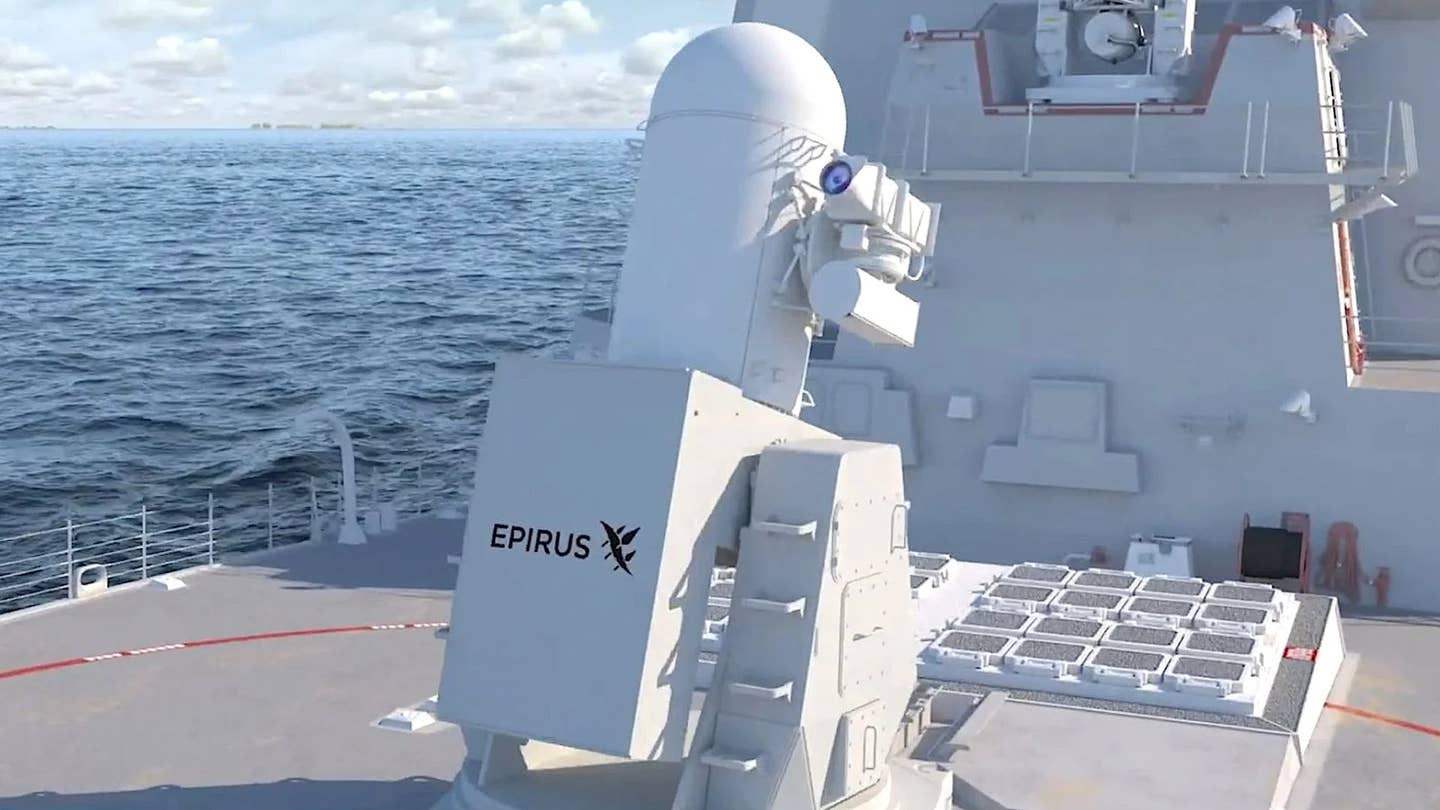Defense contractor Epirus announced that the U.S. Navy will soon conduct an experiment using its directed-energy weapons against small vessels.
An release on April 4 stated that the company’s Leonidas technology, which can produce waves of energy strong enough to damage electronics, will be utilized in the 2024 Advanced Naval Technology Exercise-Coastal Trident, or ANTX-CT24. Among other things, the trials will look at how high-power microwaves can destroy outboard motors.
:quality(70)/cloudfront-us-east-1.images.arcpublishing.com/archetype/FPM6LARUKRC5FH2SE7FCLT6I2Y.jpg)
While Ukrainian troops use unmanned surface vessels to wreck Russian ships, and Houthi rebels in Yemen bombard the Red Sea and Gulf of Aden with attack drones, navy leaders have bemoaned the lack of directed-energy capabilities available on board warships. Despite decades of investments by the Department of Defense on nontraditional armaments, relatively few programs have been created and widely implemented.
In 2022, the Army signed a $66 million contract with Epirus to provide Leonidas for the Army’s Indirect Fire Protection Capability project, which intends to defend locations against artillery, missiles, drones, and rockets. According to Defense News, the business presented a working prototype in 2023.
Declaring in a statement that his team was eager to take part in ANTX-CT24 and “demonstrate the effectiveness of long-pulse HPM technology in another threat environment,” Chief Executive Andy Lowery stated.

According to Lowery, “Epirus can defend against a wide range of threats across domains.” “Our increased cooperation with the Department of Defense further demonstrates the growing understanding of the advantages of collaborating with cutting-edge tech firms beyond the conventional defense ecosystem.”
A research released by a lobbying group for the defense industry states that the Pentagon is now working on at least 31 directed-energy projects. Nine have their roots in the Navy and Marine Corps, such as the High Energy Laser Counter-Anti-Ship Cruise Missile Program and the Optical Dazzling Interdictor Navy.

The ANTX-CT series fosters cooperation between business, academia, and the armed forces while acting as a testing ground for innovative technology. The head for fleet experiments and exercises, Brendan Applegate, states that high-power microwave equipment has previously been seen.
He stated in a statement that “ANTX-CT24 will feature technical demonstrations and experiments across a wide variety of technology areas, including countermeasures for unmanned systems.”





